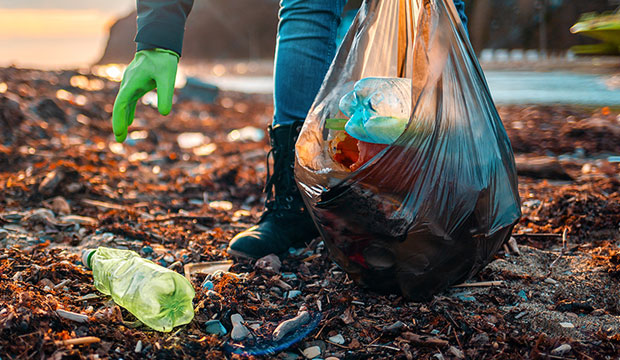Chemical recycling of plastic gets a boost in 18 US states—but environmentalists question whether it really is recycling

lastic pollution is virtually everywhere on earth, and the public is increasingly concerned about the buildup of plastic litter in neighborhoods, parks, and beaches as well as enormous garbage patches in the world’s oceans. Haunting photos of animals entangled in plastic cords or speared with plastic straws appear regularly on social media. And news reports about microplastics contaminating water and food stoke concern about how to keep this ubiquitous and popular synthetic material out of the environment.
In the US, people are asking their elected leaders to reduce plastic pollution. To that end, environmental advocates are seeking polices to reduce the use of single-use plastics such as beverage bottles and snack bags. They point out that less than 10% of plastic used in the US ends up recycled.Read More : Beyond reusing and recycling: How the US could actually reduce plastic production Meanwhile, the American Chemistry Council (ACC), the major trade group for the chemical industry, is offering another plan—policies to promote chemically recycling plastics by breaking them down into molecular building blocks for reuse. This process, also called advanced recycling, differs from mechanical recycling. The mechanical method, still in use, chips up used plastic into bits that are blended into virgin plastic, which is made from oil or natural gas, to give it recycled content.
“Policy makers are very interested” in advanced recycling, says Craig Cookson, senior director of plastics sustainability for the ACC. “Their constituents are coming to them and saying they want to see greater amounts and more types of plastics recycled in their communities.”
Lawmakers in states are responding to the ACC’s efforts. Earlier this year, Kentucky, Mississippi, South Carolina, and West Virginia enacted laws that ostensibly promote chemical recycling of used plastic. They joined 14 other states that have enacted similar legislation since 2017.
But environmental advocates say that these laws are the wrong way to go, in particular because existing processes for advanced recycling of plastics are energy intensive and generate pollution. The advocates also question applying the term recycling when the processes are used to generate fuels.
Industry effort to promote the new state laws “is all about public relations,” says Judith Enck, president of Beyond Plastics, a group that seeks to end single-use plastic pollution through the reduction and reuse of the material. Producers are trying to acknowledge that plastic pollution is a problem while preserving business, she says.
Instead of working to generate less plastic waste, companies are seeking a technical fix that will let them keep producing—and reaping huge profits from—plastic, says Renée Sharp, the strategic adviser for Safer States, an alliance of health and safety advocates that tracks environmental legislation in states.
“We’re seeing legislators who think that they’re actually doing something that’s good for the environment, but they have bought the industry line. They don’t really understand what these technologies are,” Sharp tells C&EN. Backers of the state bills include Democrats and Republicans alike.
In the US, people are asking their elected leaders to reduce plastic pollution. To that end, environmental advocates are seeking polices to reduce the use of single-use plastics such as beverage bottles and snack bags. They point out that less than 10% of plastic used in the US ends up recycled.
“Policy makers are very interested” in advanced recycling, says Craig Cookson, senior director of plastics sustainability for the ACC. “Their constituents are coming to them and saying they want to see greater amounts and more types of plastics recycled in their communities.”
Lawmakers in states are responding to the ACC’s efforts. Earlier this year, Kentucky, Mississippi, South Carolina, and West Virginia enacted laws that ostensibly promote chemical recycling of used plastic. They joined 14 other states that have enacted similar legislation since 2017.
But environmental advocates say that these laws are the wrong way to go, in particular because existing processes for advanced recycling of plastics are energy intensive and generate pollution. The advocates also question applying the term recycling when the processes are used to generate fuels.
Industry effort to promote the new state laws “is all about public relations,” says Judith Enck, president of Beyond Plastics, a group that seeks to end single-use plastic pollution through the reduction and reuse of the material. Producers are trying to acknowledge that plastic pollution is a problem while preserving business, she says.
Instead of working to generate less plastic waste, companies are seeking a technical fix that will let them keep producing—and reaping huge profits from—plastic, says Renée Sharp, the strategic adviser for Safer States, an alliance of health and safety advocates that tracks environmental legislation in states.
“We’re seeing legislators who think that they’re actually doing something that’s good for the environment, but they have bought the industry line. They don’t really understand what these technologies are,” Sharp tells C&EN. Backers of the state bills include Democrats and Republicans alike.
Source: cen.acs.org
Useful Links:
